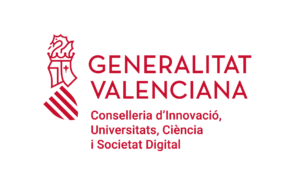Network for the Promotion of European Leadership in Mobile Communications based on 6G Technology
The main objective of the Strategic Network IMPACT6G, coordinated by the Professor of Mobile Communications at the Universitat Politècnica de València and Director of the iTEAM Research Institute, with the participation of Fundación i2CAT, Gradiant Technology Centre and the University of Murcia, is to define strategies to advise the Authorities. This will be carried out through the development of actions related to the following general objectives:
-
Strengthening Spain’s presence in European initiatives on wireless mobile technologies (6G),
-
Influencing the definition of the European Commission’s Framework Programme 10 by prioritizing the development of wireless mobile technologies,
-
Creating a network of entities with UNICO infrastructures and 5G/6G experimentation facilities to validate advances and define development strategies,
-
Promoting interdisciplinary collaboration and knowledge transfer within the telecommunications ecosystem.
The network represents leading Spanish entities in R&D&I in telecommunications and mobile technologies, and it actively participates in governing bodies and key associations such as 6G-IA, the 6G Industry Association, SNS-JU, and the One6G Association.
The project seeks to influence the definition of the EC’s Framework Programme through collaboration with CDTI and other international initiatives, fostering a collaborative structure among universities, public and private technology centres. The evolution of mobile communications has advanced from the first generation of digital communication in the 1990s to today’s 5G technology. 6G, currently in the conceptualization and standardization phase (expected around 2026–2027), aims to overcome the limitations of 5G and will be fundamental for technological convergence and the incorporation of new elements such as virtualization, cloud management, cybersecurity, and artificial intelligence.
It is anticipated that the initial commercial deployment of 6G will not occur until the end of 2030. Therefore, Spain must coordinate its 6G research ecosystem to position itself as a strategic global player. Key challenges include integrating AI while ensuring privacy, global connectivity, and data trustworthiness; adapting legislation to facilitate the implementation of 5G and 6G in sectors such as autonomous driving and UAVs; overcoming the initial advantage of countries such as the US, China, and South Korea in 6G research; establishing a single global standard through collaborative projects such as 6GSUNRISE and HEXA-X-II; and influencing European R&D&I policies under the Horizon Europe 2025–2027 framework, focused on digital transition and infrastructure strengthening.
In conclusion, the IMPACTO6G Network is strategically positioned to collaborate with industrial and academic associations, define objectives and roadmaps for the future of mobile communications, and position Spain as a leader in next-generation wireless technologies.
IMACT6G members:

Acknowledgments:

This project is developed within the framework of the action RED2024-153933-E, funded by the Ministry of Science, Innovation and Universities (MCIU) and the State Research Agency (AEI), with institutional DOI code 10.13039/501100011033. The beneficiary of this grant is the Universitat Politècnica de València.






 OBJECTIVE: To investigate on sound space control applications in real and dynamic environments using inference and classification tools based on novel machine and deep learning techniques, aiming at maximum performance, energy efficiency and feasibility.
Grant PID2021-124280OB-C21 funded by MICIU/AEI/10.13039/501100011033 and ERDF, EU.
OBJECTIVE: To investigate on sound space control applications in real and dynamic environments using inference and classification tools based on novel machine and deep learning techniques, aiming at maximum performance, energy efficiency and feasibility.
Grant PID2021-124280OB-C21 funded by MICIU/AEI/10.13039/501100011033 and ERDF, EU.

